Europe: a great war barracks with its economic bombs
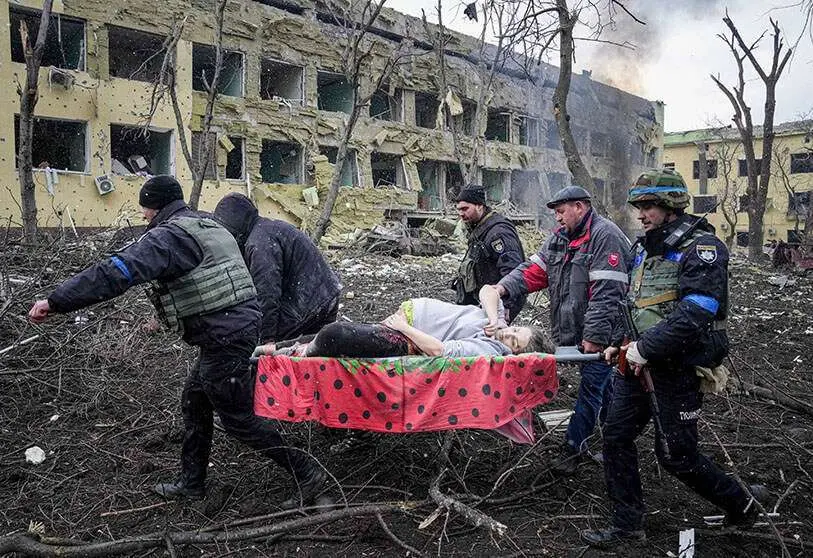
The Russian invasion of Ukraine is already being felt in the pockets of the world's population. The war has also moved into strategic sectors such as energy, metals and cereals, threatening the world's recovery after two years of pandemic.
The situation inside Ukraine is unsustainable, with a humanitarian crisis resulting from intense Russian bombardment of several cities: from attacking military infrastructure and airfields to indiscriminate missile strikes on a multitude of residential neighbourhoods.
The World Health Organisation (WHO) reports shelling of 18 hospitals, deliberate destruction of ambulances and Russian troops blocking the supply of medicines, oxygen and medical supplies. The maternity hospital in Mariupol was destroyed with newborn children under the rubble and even the ceasefire to allow the evacuation of civilians has not been respected, after several rounds of talks on the border with Belarus, with Ukrainian and Russian delegates. After three failed attempts, the Red Cross denounces an "apocalyptic" situation because the missiles are destroying everything.
Tedros Adhanom, the head of the WHO, took part in the UN Human Rights Council and pointed out that attacks on hospitals and medical personnel are forbidden under international humanitarian law. The Geneva Conventions consider medical personnel to be "neutral" in an armed conflict, and failure to respect this convention framework puts Russia at risk of war crimes.
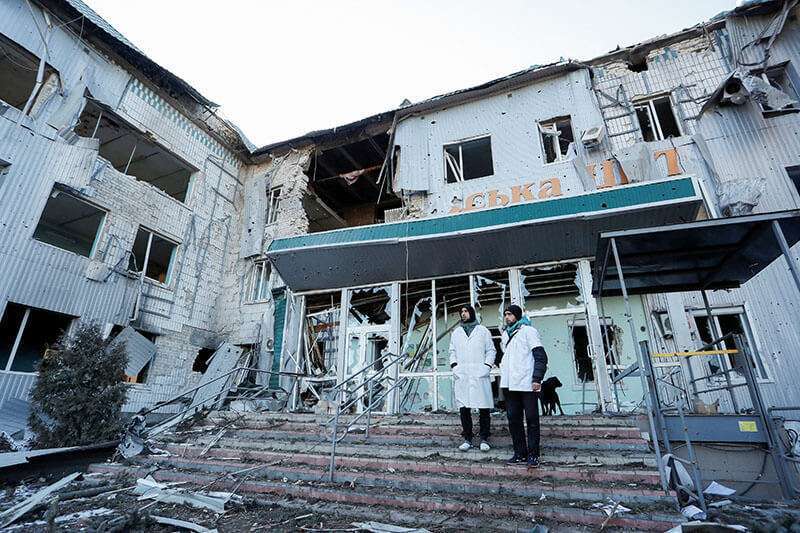
There is no sign of a ceasefire. Dictator Vladimir Putin is not getting things the way he premeditatedly and calculatingly envisaged in an invasion that he has been preparing for more than a year at least. He did not count on the courage of Ukrainian President Volodymir Zelensky, nor on the stoic resistance and courage of the people. It is the younger generations who have been born and raised in a free Ukraine in the last thirty years who are standing up to him; unfortunately they are the ones who are dying to defend their homeland.
The bombardments are incessant and the resistance fights against the invader and cities are razed to the ground: in the north, Kharkov and Irpin, 30 kilometres from the capital Kiev, have been devastated.
Several cities have fallen to the mercy of the missiles, the Kremlin's priority is first to seize the corridor between the Sea of Azov and the Black Sea, and it is there that it is most relentless in its bombardment. There is an assassination, Zelenski reports, while European leaders speak of terrible suffering and US Vice President Kamala Harris condemns atrocities of unimaginable proportions.
The war strategy being pursued is to annihilate and expel the inhabitants of towns along the eastern border with access to the sea. It is the coastal areas that are caught up in an indescribable rampage: the intention is to dominate from Lugansk, Donetsk, to Zaporiyia and Kherson with an outlet to the Azov, the latter connecting with Crimea and Sevastopol. Then to extend from Mykolaiv, which also has the Black Sea, to continue through the beautiful port of Odessa and end up in Moldova.
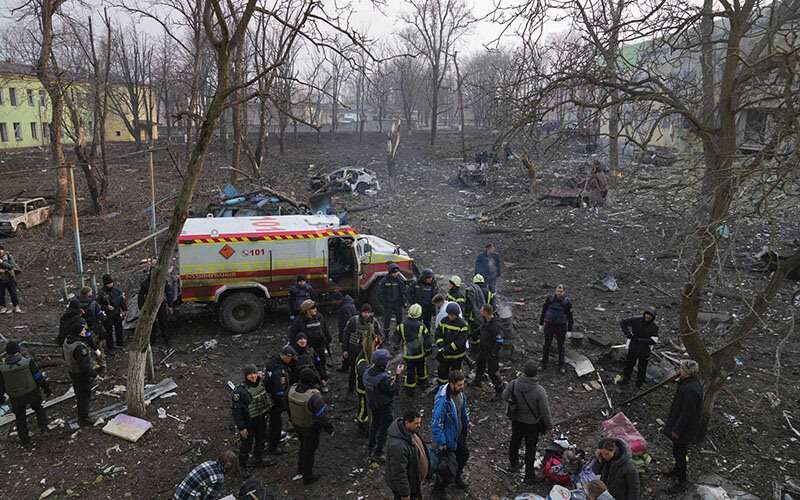
The Kremlin's pretext of NATO's extension into Eastern Europe as a red zone against Russian security is gaining meaning: it wants control of Ukraine's natural resources under its fiefdom, it wants access to the sea and its ports under its domination.
The United Nations Refugee Agency (UNHCR) reports that since 24 February more than 2 million refugees have fled Ukraine for Poland, Hungary, Slovakia, Romania, Moldova and others to Russia. The UNHCR estimates that up to 12 million Ukrainians will urgently require humanitarian assistance to survive.
The invasion of Ukraine is leaving a growing death toll, all preliminary figures because there are no reporters in all the villages and towns attacked; but Europa Press speaks of more than 500 civilians killed by Russian artillery and the wounded number in the thousands. The Pentagon claims that between 2,000 and 4,000 Russian soldiers have been killed.
Outside Ukraine, the other war is beginning to be felt: the economic one, which will also leave hundreds of victims, victims of exorbitant prices for many basic goods.
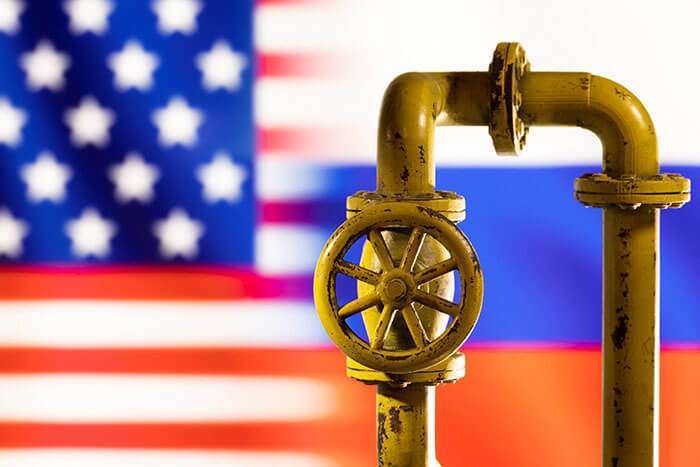
Here in Spain, President Pedro Sánchez, in a meeting with the PSOE's Federal Committee, declared that hard times will come as a result of this war. "The energy blackmail that Putin is inflicting on Europe, he has been preparing this war for a year, translates into a destabilising rise in prices," he told a worried audience.
Everything is going through the roof. The London Metal Exchange suspended trading in nickel after it reached a selling price of $100,000 a tonne. The unprecedented decision was taken on Tuesday 8 March.
The price of gold has been on an unstoppable climb, having become a traditional safe haven in times of turbulence and uncertainty, and has soared to $2,000 per ounce.
The price of oil is also rising like a hot air balloon: Brent is at 127 dollars per barrel and West Texas at over 117 dollars per barrel.
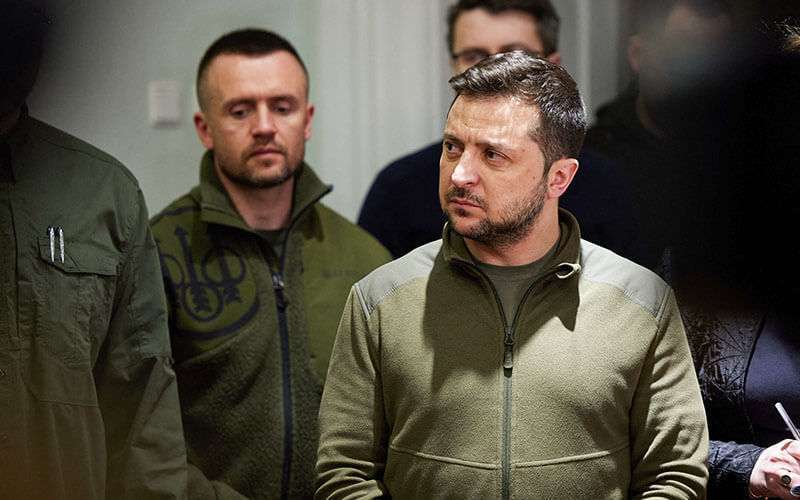 In Europe, the record high price of gas has created a bottleneck in its electricity market, anchored to the movements of this energy commodity. In Spain, the country with the greatest electricity problems and where the highest price is paid has reached the unexpected: 541 euros per megawatt. Right now, turning on the light or setting up an electric grill is a luxury.
In Europe, the record high price of gas has created a bottleneck in its electricity market, anchored to the movements of this energy commodity. In Spain, the country with the greatest electricity problems and where the highest price is paid has reached the unexpected: 541 euros per megawatt. Right now, turning on the light or setting up an electric grill is a luxury.
Other commodities such as cereals and grains are rising every day by 2 to 3% for wheat, oats and barley. According to the Spanish Cereal and Oilseed Trade Association (ACCOE), so far from the invasion of Ukraine - which began in the early hours of 23-24 February - to Thursday 10 March, wholesale cereal prices have risen by 27%; common wheat by 22.5%, malt barley by 27%, maize by 25.24% and barley by 23.59%.
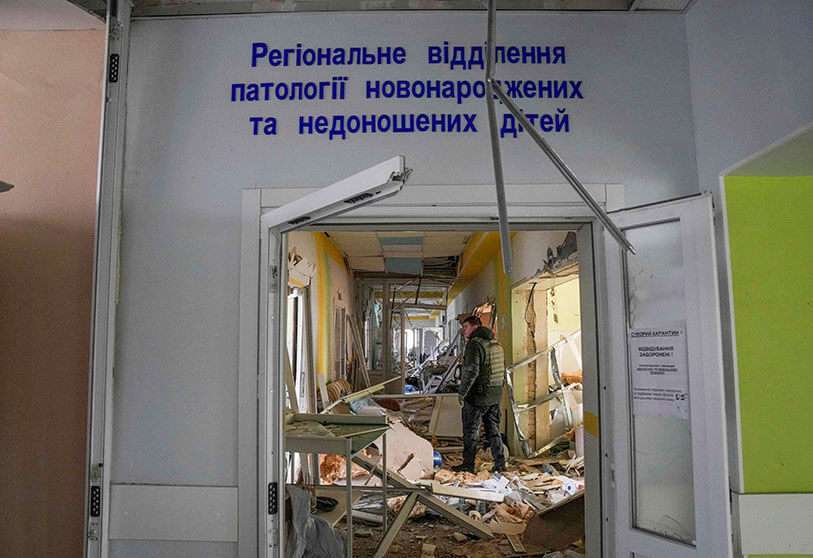
In Europe, food prices are re-labelling affecting many staples such as bread, but also pulling up the price of meat, canned food, beer and rice. The feed that livestock eat comes from Ukraine and the country is stoically fighting a Russian invasion on top of this with destroyed roads, bombed railway lines, disabled military and commercial airfields and a disputed sea outlet.
Commodities are going through a rough patch, highly sensitive to supply/demand shocks and primarily to external shocks be it natural devastation, drought or economic sanctions, a trade war or a war with real bombs.
The current scenario with metals, energy and basic raw materials with completely distorted values, not because of a fall in supply or demand due to demographic, seasonal or habit changes or natural impacts, but because of the introduction of a series of exogenous variables, such as a war invasion and a series of economic and financial sanctions against the Russian aggressor, are bringing back the pre-war scenario that triggered the Second World War.
According to Sánchez, Spain is preparing the National War Response Plan, which it is now seeking consensus with economic and social agents.
Growth is at risk, not only for Spain, but for most of the countries severely affected by the collateral damage of an invasion that has turned into a devastating war in the European backyard.
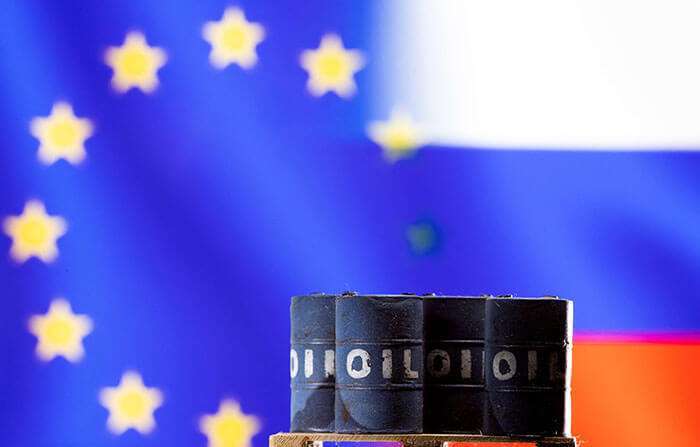
And in a nation long spurned by the European Union (EU) to join the 27-nation club - singled out for its corruption - and yet the breadbasket of the world, essentially the EU's own.
"It is an agricultural powerhouse, first in Europe in terms of arable land area, third in the world in black soil and suitable for large-scale agriculture with 25% of the world's volume. It also ranks first in the world in exports of sunflower and its oil," according to Real State Market.
But there is more: "It is number one in Europe in ammonia production; it has Europe's fourth largest natural gas pipeline system in the world with 142 billion cubic metres of natural gas. It is the world's third largest producer of locators and geolocation equipment; the world's third largest exporter of iron; the world's fourth largest manufacturer of rocket launchers; the world's fourth largest exporter of minerals, clay, titanium; the tenth largest exporter of steel; and the eighth largest country in the world in terms of installed capacity of nuclear power plants".
It has fifteen nuclear power plants in various parts of its geography. The Russian mortar attack on the Zaporiyia power plant in Ukraine caused a fire that was quickly brought under control; the Russian army's irresponsibility unleashed a wave of strong international condemnation.
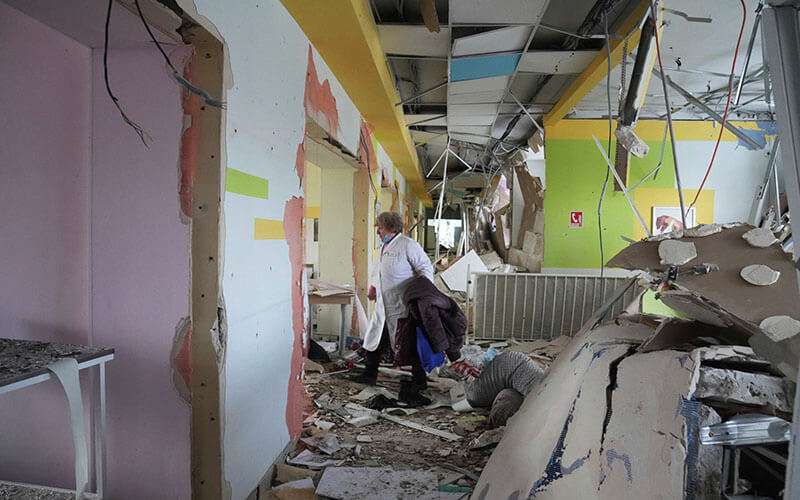
Rafael Mariano Grossi, director general of the International Atomic Energy Agency (IAEA), confirmed that the nuclear plant - the largest in Europe - is under the control of Russian troops, the plant's staff continue to work, but the Vienna-based agency has been unable to establish contact with them to assess the state of the nuclear reactors because there is no service on several mobile phone networks or internet.
There are also concerns about the Chernobyl reactor, the plant which suffered a serious incident in 1986, after reactor number 4 exploded, the rest of the reactors stopped operating in 2000. The spent fuel is stored in pools of water for cooling, the power line is down because of the fighting, and the Ukrainian government believes there may be a radioactive leak because it cannot be cooled normally. Finally, Belarus has said it will provide electricity to the reactor.
There is concern that Russia's war strategy may include the audacity to play on the nerves of Ukrainians and the rest of the world with the fear of a nuclear power plant explosion and a major radioactive leak.
After the attack on the reactor in Zaporiyia, which Biden described as "deliberate" and "intentional" on the part of the Kremlin, the White House announced further sanctions and consequences.
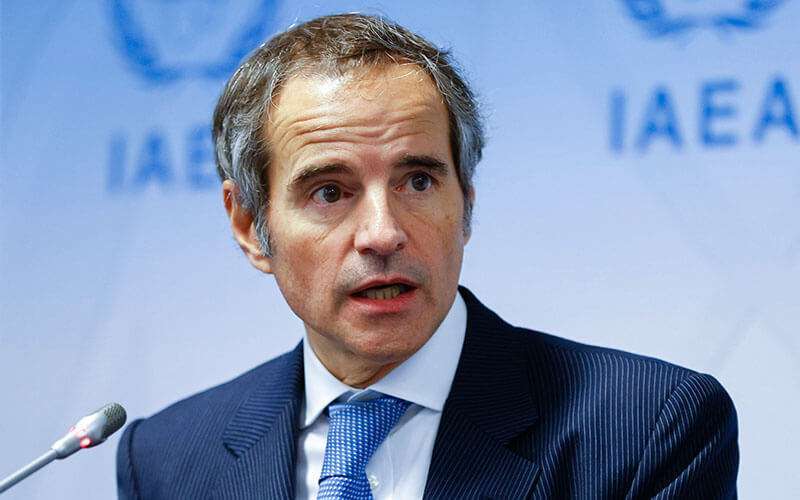
Alexander Novak, deputy prime minister of the Russian Federation, warned that a rejection of his country's oil would lead to "catastrophic consequences" for the global market and predicted that the price of crude oil could soar to an all-time high of $300 per barrel.
The global scenario is completely rarefied, the productive and distribution chains affected by the quarantines and states of alarm imposed by various countries during the pandemic to slow down the speed of SARS-CoV-2 contagion had not yet been reconnected and re-established, and now the invasion of Ukraine, a free and sovereign country, has unleashed a wave of commercial, financial, economic and aerospace sanctions. Ukraine is busy invading and Russia is vetoed by sanctions while the West is also starting to receive Russian retaliation.
Pressing the energy button to further strangle the Kremlin and make it react to stop the invasion and civilian deaths is the new decision taken by US President Joe Biden, who is determined to make Putin look like a pariah, in his words.
In a historic move, on Tuesday 8 March, the US president vetoed Russian oil and gas purchases in his country, following the insistence of Ukrainian President Volodymir Zelensky, both outraged by the recent deaths of hundreds of civilians fleeing with their suitcases and pets in cities such as Irpin and Kharkov, in an attempt at a ceasefire to establish safe corridors for civilians to leave, which Russian troops did not respect. Ukrainian photojournalists, correspondents and courageous journalists - as well as bloggers - continue to show the world the atrocities, the genocide, perpetrated by Putin in Ukraine.
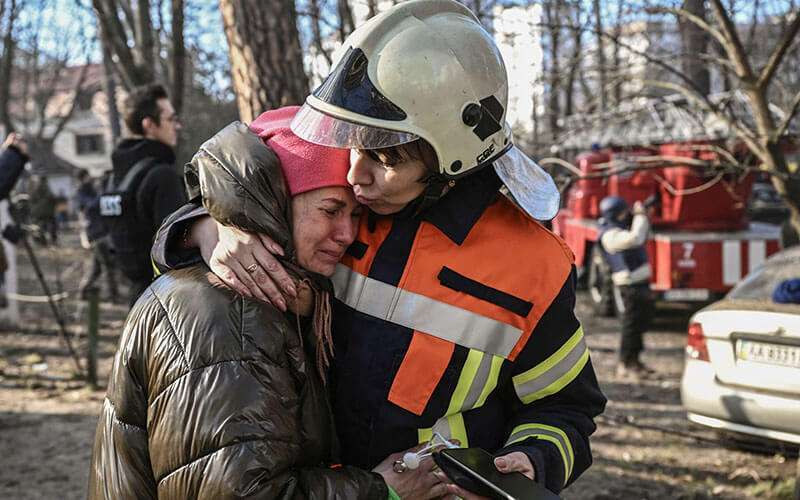
"The United States produces more oil than all European countries combined and we can take a step that others cannot, but we are working closely with Europe and our partners to develop a long-term strategy to reduce their dependence on Russian energy as well," Biden said in a speech from the White House.
The UK has also joined the boycott, with Prime Minister Boris Johnson stating that no more barrels of oil will be bought from Russia from next year.
The tables are turning; the invasion orchestrated by the Kremlin satrap will end up shaping a new balance of geopolitical, geo-economic and geo-strategic forces. And it will accelerate the energy transition to renewables.
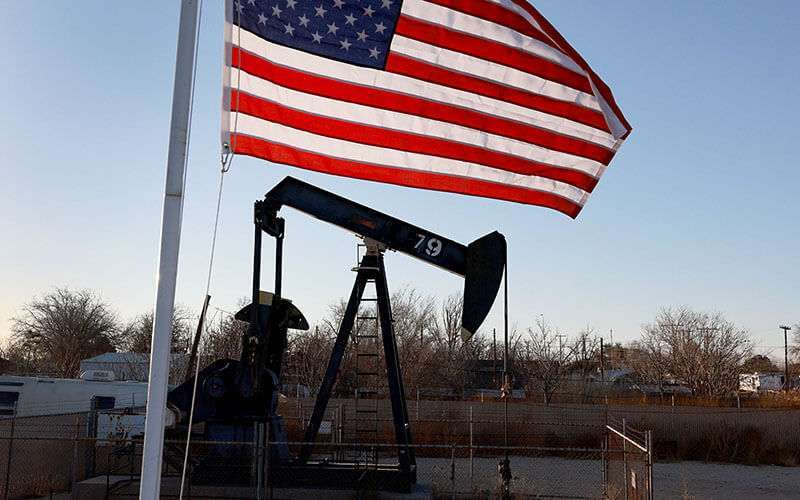
For the time being, it is serving as an incentive to unblock several frozen conflicts: a US delegation is negotiating in Venezuela the return of that country's oil to international markets, and the US and Iran are making overtures to rescue an agreement on its nuclear programme that would allow that nation to return to the markets.
So far, the European Union (EU) has not joined the energy veto because it is 40 % dependent on Russian gas, according to data from the European Federation for Transport and Environment. The EU pays Russia 118 billion dollars a day for this gas supply. The European Commission is seeking to square the circle with a strategy to reduce this dependence by two-thirds within a year. For now it is knocking on the doors of Norway, Algeria and Azerbaijan.
Also, 30 % of the EU's coal comes from Russia, and for oil purchases, the environmental organisation Transport & Environment notes that the European club pays $285 million a day for crude oil imports; between 4 and 8 % of Europe's oil supply passes through pipelines from Russia.
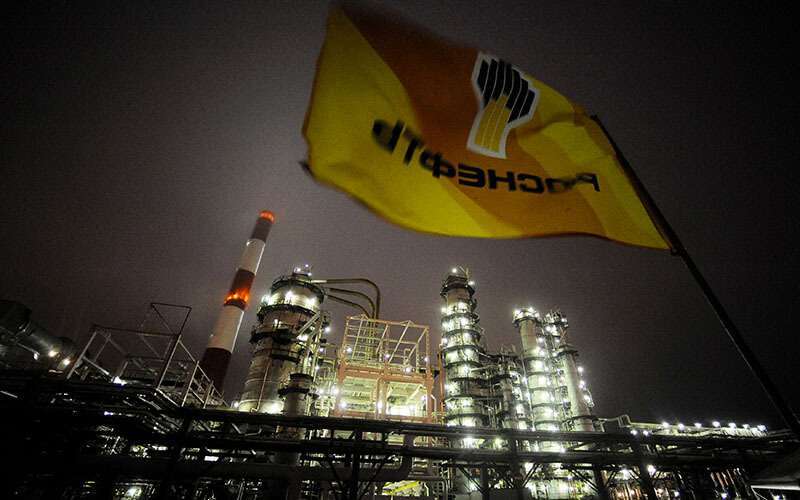
The West is taking a series of risky decisions to punish Putin for attacking Ukraine, to corner the economy, its president, its ministers, its oligarchs, to create a choking chokehold that bites.
Touching oil and gas this time has closed political ranks in the United States: for the first time during Biden's tenure, this decision was supported by a majority of both Republicans (including Trump voters) and all Democrats in his party.
In the most recent polls, one published by the Wall Street Journal, 79% of Americans "support a ban on Russian oil imports". 77% of Republicans, along with 72% of Republicans who say they will vote for Donald Trump again in 2024, agree with Biden's decisions to ban Russian oil imports.
Another Quinnipiac University poll, conducted between 4 and 6 March, found that 71% of Americans are willing to pay higher gas prices as a result of the veto: "62% of Republicans and 82% of Democrats are in favour."
"Today's decision comes at a cost to your household: Putin's war is already affecting American families at the gas pump. Since Putin began his military buildup, the price of gasoline in the United States has gone up 75 cents. And with this action, it's going to go higher," Biden acknowledged.
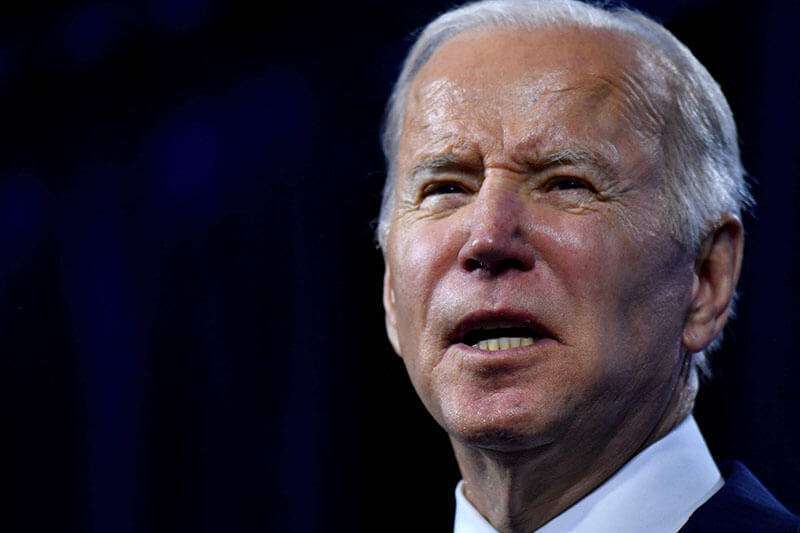
The White House tenant, according to Quinnipiac University, has risen five percentage points since January, at which time only 33% of Americans approved of him.
Although the NPR/PBS News Hour/Marist National Poll gives Biden an eight-point increase, following his State of the Union address in which he defended the values of freedom and democracy in the face of Putin's tyranny, oppression and invasion. War traditionally plays a decisive role in influencing the average American voter. As in any war there are winners and losers.

